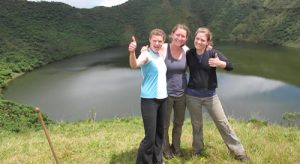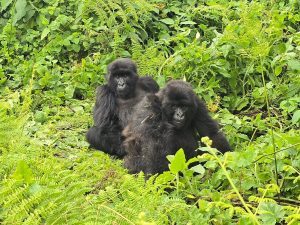Responsible Gorilla Trekking in Rwanda: Conservation & Ethical Tourism
See what Rwanda via Universal Ventures Rwanda has to offer especial the incredible Gorilla trekking in Rwanda Volcanoes National Park this is one of the most sought-after wildlife experiences in the world. However, as tourism grows, it is crucial to ensure that trekking remains ethical, sustainable, and conservation-driven. Responsible gorilla trekking not only protects these endangered primates but also benefits local communities and supports conservation efforts. Here’s how you can be a responsible traveler while experiencing Rwanda’s mountain gorillas.
Why Responsible Gorilla Trekking Matters
Mountain gorillas are critically endangered, with fewer than 1,100 remaining in the wild. These majestic creatures are vulnerable to human diseases, habitat destruction, and poaching. Responsible tourism plays a vital role in funding conservation projects, enforcing anti-poaching measures, and ensuring that local communities benefit from gorilla tourism.
How to Trek Responsibly: Essential Guidelines
1. Obtain Permits from Authorized Sources
All visitors must have a gorilla trekking permit, issued by the Rwanda Development Board (RDB). Permits regulate the number of daily trekkers and contribute directly to conservation and community development.
2. Maintain a Safe Distance from Gorillas
Trekkers are required to stay at least 7 meters (23 feet) away from the gorillas. This distance helps prevent the transmission of human diseases, to which gorillas are highly susceptible.
3. Follow the Leave-No-Trace Principle
- Do not litter in the forest.
- Do not feed the animals.
- Keep noise levels low to avoid disturbing wildlife.
4. Respect Trekking Group Limits
Each gorilla family is visited by a maximum of 8 tourists per day to reduce stress on the gorillas and minimize human impact.
5. Do Not Touch the Gorillas
Even if a gorilla approaches you, remain calm and avoid any direct contact. Gorillas share 98% of their DNA with humans, making them highly vulnerable to human-borne illnesses.
6. Support Local Communities
Choosing community-led tourism initiatives, such as visiting the Iby’Iwacu Cultural Village, ensures that local communities benefit from gorilla tourism. This creates incentives for conservation and reduces human-wildlife conflict.
7. Book Ethical Tour Operators
Ensure that your tour operator prioritizes sustainability, conservation, and community involvement. Ethical operators follow guidelines set by the International Gorilla Conservation Programme (IGCP) and RDB.
The Role of Gorilla Tourism in Conservation
Gorilla tourism funds vital conservation programs, including:
- Anti-poaching patrols to prevent illegal hunting.
- Habitat protection through national park conservation efforts.
- Veterinary care for sick and injured gorillas via the Gorilla Doctors program.
- Community projects that promote education, healthcare, and alternative livelihoods for local people.
Best Time for Responsible Gorilla Trekking
The best time to visit Rwanda for gorilla trekking is during the dry seasons (June-September & December-February). These months offer better trekking conditions and lower risks of environmental damage due to excessive rain.
Experience Ethical Gorilla Trekking in Rwanda
By practicing responsible tourism, you contribute to the protection of Rwanda’s mountain gorillas and their fragile ecosystem. Book your gorilla trekking adventure today and be part of sustainable conservation efforts that make a lasting impact!




